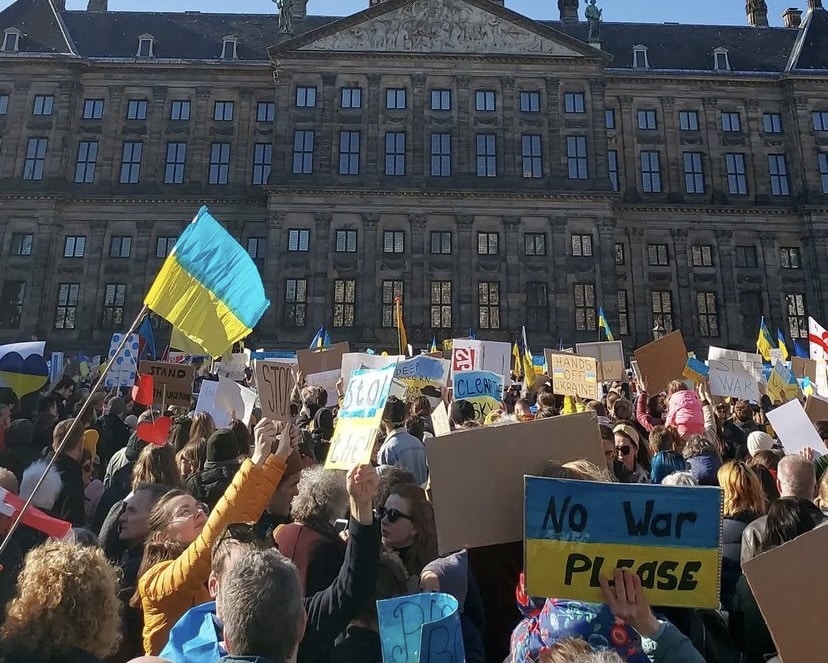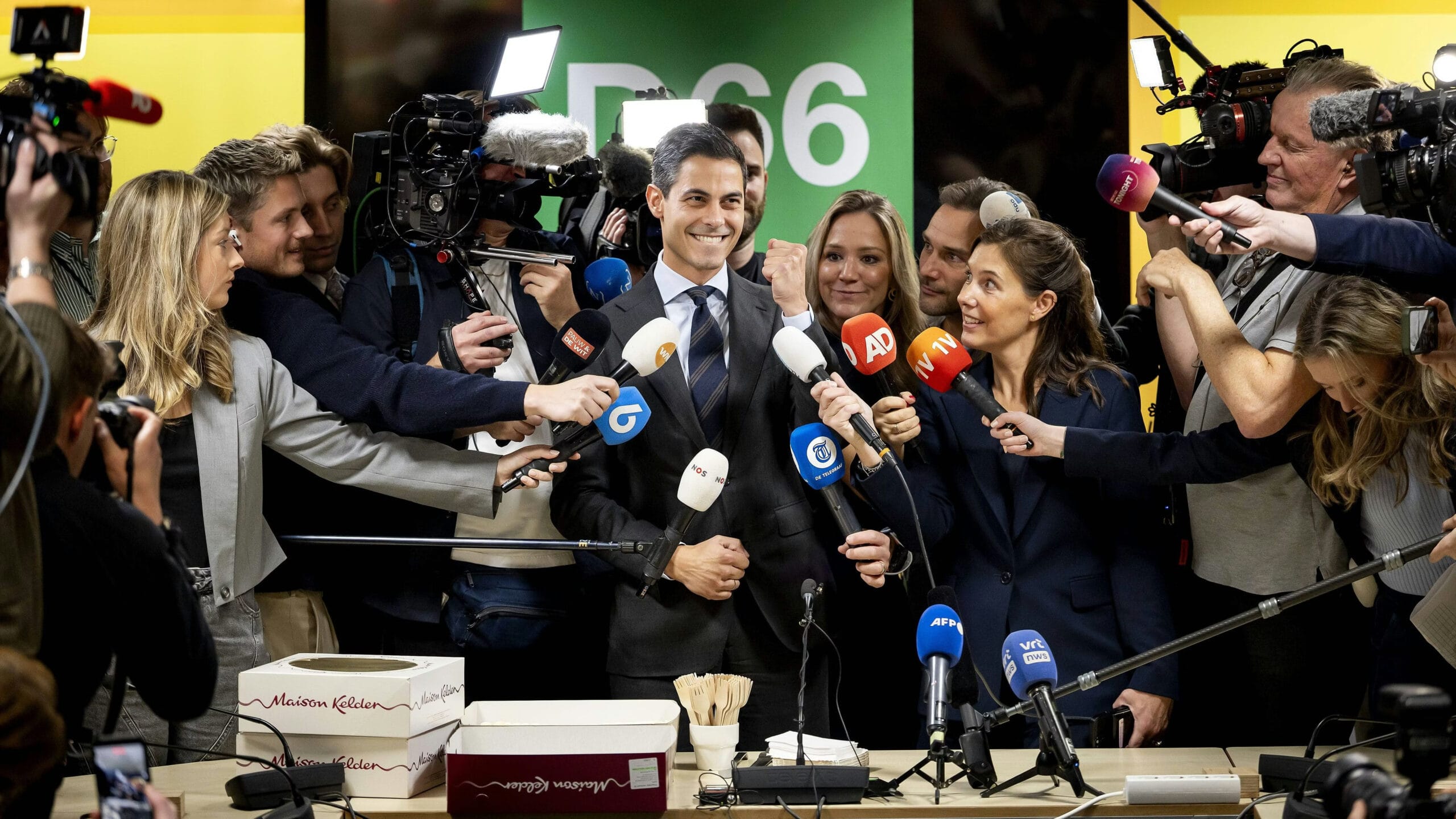Photo: Dutch people's solidarity demonstration with Ukraine on Dam Square, February 2022
On 7 July, the House of Representatives asked the Advisory Council on International Affairs (AIV) to write an urgent opinion on the consequences of the Russian invasion of Ukraine. Today, 20 October, the AIV issued a number of urgent recommendations. The gist of the advice? The government should "communicate more firmly and comprehensively" the Dutch involvement in Ukraine's struggle, says AIV chairman Bert Koenders.
The Advisory Council on International Affairs (AIV), a key cabinet advisory body, has looked at the impact of Russia's war against Ukraine on foreign policy. It comes up with a set of six 'urgent' recommendations. Right at number 1 is the recommendation to the Dutch government to emphasise the urgency of the war, and invest in public support.
War also affects the Netherlands
According to the AIV, the war in Ukraine also affects the Netherlands. "Our values, our interests and the international rule of law are at stake," the council writes. The Dutch government is therefore "rightly" politically and morally committed to this conflict by supporting Ukraine with military, economic and humanitarian means.
The AIV notes that not only the Netherlands but the entire West is "in direct conflict with Russia" due to the "numerous subversive activities" through which Russia seeks to play EU member states against each other and undermine national societies.
"The government would do well to communicate the national commitment more firmly and comprehensively."
Therefore, the Dutch government must now start making sure that Dutch people realise exactly what is at stake, says Advisory Council chairman Bert Koenders: "The government would do well to communicate the national commitment more firmly and comprehensively.
"War fatigue"
The consequences of the war are being felt by the Dutch. Think of the financial-economic sanctions packages against Russia, the many Ukrainian refugees, rising energy prices and high inflation. Although the announced price cap - an idea of the Green Left and Labour Party - eases the financial burden on households and SMEs, bills will remain high.
The AIV fears that this could lead to so-called war fatigue. The council points to the risk that the Dutch experience the war less and less as 'also our war.' The result is a reduction in support among the Dutch population for sanctions against Russia or support for Ukraine and Ukrainian refugees.
"A lot will be asked of our resilience and decisiveness in the coming years."
All the more important to invest in public support, the council says, as the war is likely to last and have a long aftermath. "Much will be demanded of our resilience and decisiveness in the coming years," Koenders says. "Cohesion and solidarity between and within countries and continued support are the best guarantee to defend the Netherlands and Europe against Russian expansion."
Stronger Europe
A further recommendation is to strengthen the EU's role when it comes to supporting Ukraine. There should be more EU cooperation on defence and a Euro Security Commissioner, as well as a European Security Council.
In addition, countries on the periphery of the European Union should also be much more involved, especially candidate countries. The AIV therefore also welcomes the recent European Political Community (EPG) initiative. In addition to the national leaders of the 27 EU member states, leaders of 17 European states outside the Union are also participating.
Perspective for the Balkans
Finally, the AIV notes the need for the EU to decide on the position of the Western Balkan countries, such as Bosnia and Herzegovina.
Along with northern Macedonia and Moldova, Bosnia and Herzegovina is among the countries completely dependent on Russian gas, wrote the FMS earlier this week. Without European cooperation, alternatives for these countries are difficult to achieve in the short term. The AIV therefore also asks the Netherlands to take the initiative to involve both Ukraine and the Balkan countries in the energy union and the integration of energy networks in Europe as soon as possible.
The AIV opinion has many other recommendations. For instance, governments should design scenarios for de-escalation, consolidate military and humanitarian support to Ukraine, and work on plans for reconstruction. More aid should also be provided to African countries, for example, to mitigate the economic impact of the war such as rising food prices. The full 14-page letter from the AIV is this page find.




